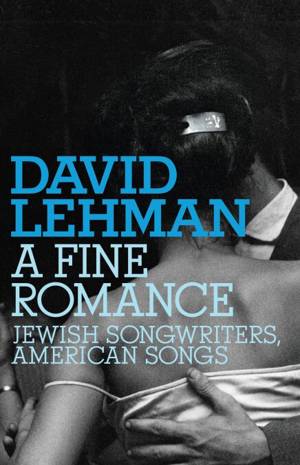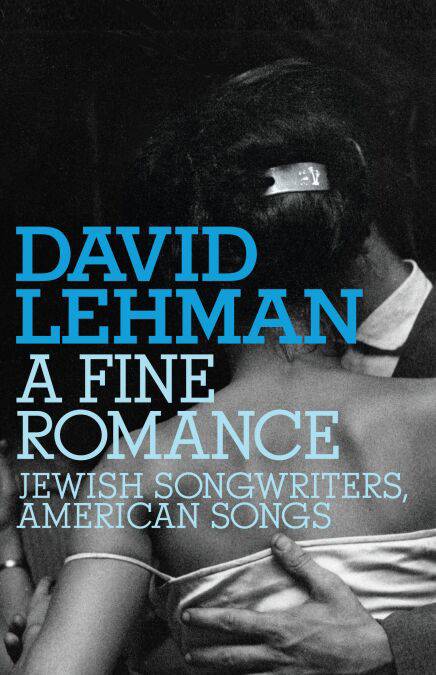
- Afhalen na 1 uur in een winkel met voorraad
- Gratis thuislevering in België vanaf € 30
- Ruim aanbod met 7 miljoen producten
- Afhalen na 1 uur in een winkel met voorraad
- Gratis thuislevering in België vanaf € 30
- Ruim aanbod met 7 miljoen producten
Zoeken
Omschrijving
In A Fine Romance, David Lehman looks at the formation of the American songbook—the timeless numbers that became jazz standards, iconic love songs, and sound tracks to famous movies—and explores the extraordinary fact that this songbook was written almost exclusively by Jews.
An acclaimed poet, editor, and cultural critic, David Lehman hears America singing—with a Yiddish accent. He guides us through America in the golden age of song, when “Embraceable You,” “White Christmas,” “Easter Parade,” “Bewitched, Bothered and Bewildered,” “Can’t Help Lovin’ Dat Man,” “My Romance,” “Cheek to Cheek,” “Stormy Weather,” and countless others became nothing less than the American sound track. The stories behind these songs, the shows from which many of them came, and the shows from which many of them came, and the composers and lyricists who wrote them give voice to a specifically American saga of love, longing, assimilation, and transformation.
Lehman’s analytical skills, wit, and exuberance infuse this book with an energy and a tone like no other: at once sharply observant, personally searching, and attuned to the songs that all of us love. He helps us understand how natural it should be that Wizard of Oz composer Harold Arlen was the son of a cantor who incorporated “Over the Rainbow” into his Sabbath liturgy, and why Cole Porter—the rare non-Jew in this pantheon of musicians who wrote these classic songs shaped America even as America was shaping them.
(Part of the Jewish Encounter series)
An acclaimed poet, editor, and cultural critic, David Lehman hears America singing—with a Yiddish accent. He guides us through America in the golden age of song, when “Embraceable You,” “White Christmas,” “Easter Parade,” “Bewitched, Bothered and Bewildered,” “Can’t Help Lovin’ Dat Man,” “My Romance,” “Cheek to Cheek,” “Stormy Weather,” and countless others became nothing less than the American sound track. The stories behind these songs, the shows from which many of them came, and the shows from which many of them came, and the composers and lyricists who wrote them give voice to a specifically American saga of love, longing, assimilation, and transformation.
Lehman’s analytical skills, wit, and exuberance infuse this book with an energy and a tone like no other: at once sharply observant, personally searching, and attuned to the songs that all of us love. He helps us understand how natural it should be that Wizard of Oz composer Harold Arlen was the son of a cantor who incorporated “Over the Rainbow” into his Sabbath liturgy, and why Cole Porter—the rare non-Jew in this pantheon of musicians who wrote these classic songs shaped America even as America was shaping them.
(Part of the Jewish Encounter series)
Specificaties
Betrokkenen
- Auteur(s):
- Uitgeverij:
Inhoud
- Aantal bladzijden:
- 272
- Taal:
- Engels
- Reeks:
Eigenschappen
- Productcode (EAN):
- 9780805242713
- Verschijningsdatum:
- 5/10/2009
- Uitvoering:
- E-book
- Beveiligd met:
- Adobe DRM
- Formaat:
- ePub

Alleen bij Standaard Boekhandel
+ 16 punten op je klantenkaart van Standaard Boekhandel
Beoordelingen
We publiceren alleen reviews die voldoen aan de voorwaarden voor reviews. Bekijk onze voorwaarden voor reviews.







